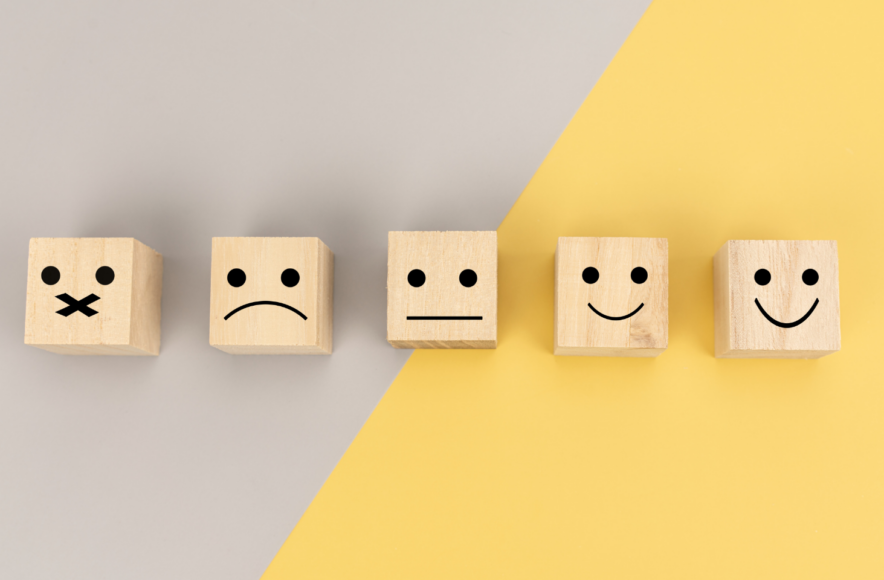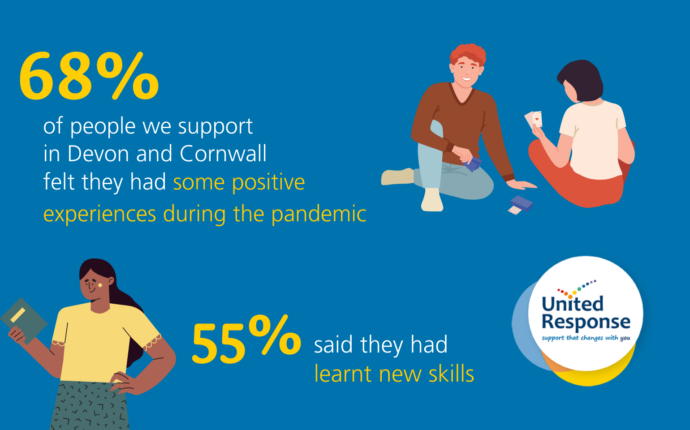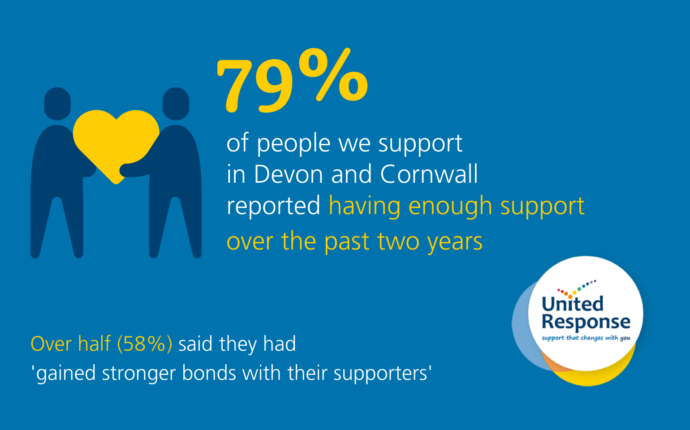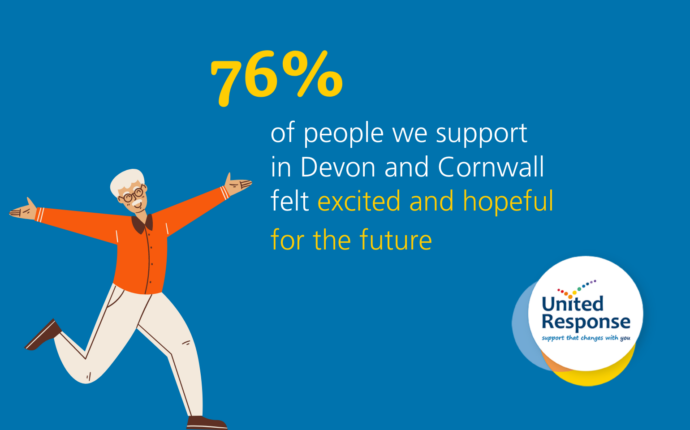68% of people we support in Devon and Cornwall experienced positives during Covid pandemic including learning new skills and feeling supported

The survey
The survey included 14 questions about people’s health and wellbeing, what support they had received and what problems or challenges they had encountered during the pandemic.
The aim was to give the team a closer look at how United Response had supported people in the area throughout that time and to ask what people we support would find useful for the future.
There was a mix of multiple choice questions, for example ‘yes’, ‘no’ and ‘don’t know’, and some longer, more open questions so that people we support could comment on something if they wanted to.
Meet Francesca
Francesca Moss is 20 years old and lives in Torquay, Devon.
While she was studying at ROC College, Francesca was supported on to an internship at one of our offices, the Boat Shed in Totnes.
During her internship, Francesca worked closely with Person Centred Planning Co-ordinator Paul Bidwell to assess the quality of the support we provide.
Having been such a key part of this important work, Francesca went on to be employed by United Response. She is now working part-time at the Boat Shed as a Stakeholder Engagement Support Worker.
Francesca said one of the project’s biggest challenges was distribution, as well as keeping answers anonymous and giving people enough time to respond.
The total number of responses they received was 65, out of a possible 408.
Paper copies of the survey were sent to family homes across Devon and Cornwall, including ROC College students. People we support who were living with family accounted for 68% of the replies.
The team also worked closely with Team Leaders and Managers to get surveys out to people living in residential (3%) and Supported Living homes (29%).
Analysing the results
The results of the survey were unexpectedly balanced.
Despite having been through an extremely challenging two years, just over two thirds (68%) of people we support reported some positive experiences, including:
- Getting to spend more time with the important people in their lives
- Happy being at home doing hobbies
- Getting up later
- Less pressure and social demands e.g hugging
- Less people outdoors when they did go out
- Having time to plan for the future

Francesca said:
It was really balanced. There were people that said they had felt lonely, but they agreed that they had received a lot of support.
Some people said that it was actually a good time of reflection, giving time to step back and think ‘what do I want from life?’
She continued:
Over half (55%) of the people we surveyed said that they had learnt new skills.
Things like washing hands or walking somewhere independently, using Zoom or doing arts and crafts as an outlet for frustration.
Lockdown gave them the perfect opportunity, because there wasn’t the distraction of needing to be somewhere at a certain time. You were literally locked down all day every day.
Getting the right support
79% of people reported having enough support, as opposed to 15% who felt that they hadn’t.
Over half (58%) of respondents said they had gained stronger bonds with their supporters –this could be because they were spending more time with those people.
Francesca said:
I think when we are supported every day, we build up a good rapport and a good working relationship with people.
Although that is a positive, it can sometimes be a bit hard to say when you’re not happy with something because there’s a loyalty there.

She added:
I think doing a survey is a great way to give people an opportunity to say whatever they want and raise those concerns in a safe way.
It was a chance for their voices to be heard. I think things like this are very important – it’s the easiest way of raising people’s voices and giving them a platform to have their say.
Room for improvement – recommendations
The survey did however highlight some areas where people we support felt things could improve.
Francesca explained that one of their recommendations was to provide some IT training, to help people we support and staff to feel more confident when using technology:
I think there is a lot of uncertainty about IT and I think people are quite nervous in some respects about using it.
What I thought would be really good is setting up short courses for people we support – how to use a laptop for example. It doesn’t have to be anything too technical, it could cover how you log in, how you write an email and maybe some training around online safety.
We could do courses for staff as well, to give them confidence to assist people we support to use technology.
Supporting people with their mental health
Francesca also said that mental health was a priority for a lot of the people who responded.
They said they had experienced a range of mental health issues including feelings of fear, isolation, reduced motivation, anxiety, boredom and frustration.
Other responses mentioned how they found it difficult to understand what was happening, how they didn’t like restrictions like mask wearing, how they had conflict with their housemates and how they were missing their daily routines and activities.
76% of the replies said they were excited and hopeful for the future.
As well as simply having more freedom, the things people mentioned they were most looking forward to included:
- Starting work
- Getting out and about again
- Hugging
- Seeing friends and family
- Holidays
- Marking significant dates with others (like birthdays)

Future plans
The team in Devon now plan to follow-up the research by setting up forums – not just locally – but working across the organisation so people we support and their families have a space to talk about the issues that concern them.
Francesca’s advice to anyone undertaking a similar project or role is not to overthink things:
My advice for someone starting in this line of work is that you will find your own way. I think especially in my role, it was quite a new role, not only for me but for United Response in general.
I think the key thing is not to worry if you’re doing the right thing – you can only do your best.
As long as you do everything with the best intentions and for the right reasons I don’t think you can go far wrong really.
She added:
It’s been such an honour to have this sort of role and to be doing this line of work – it’s a really great thing to do.
I’m really enjoying it, it’s very rewarding.